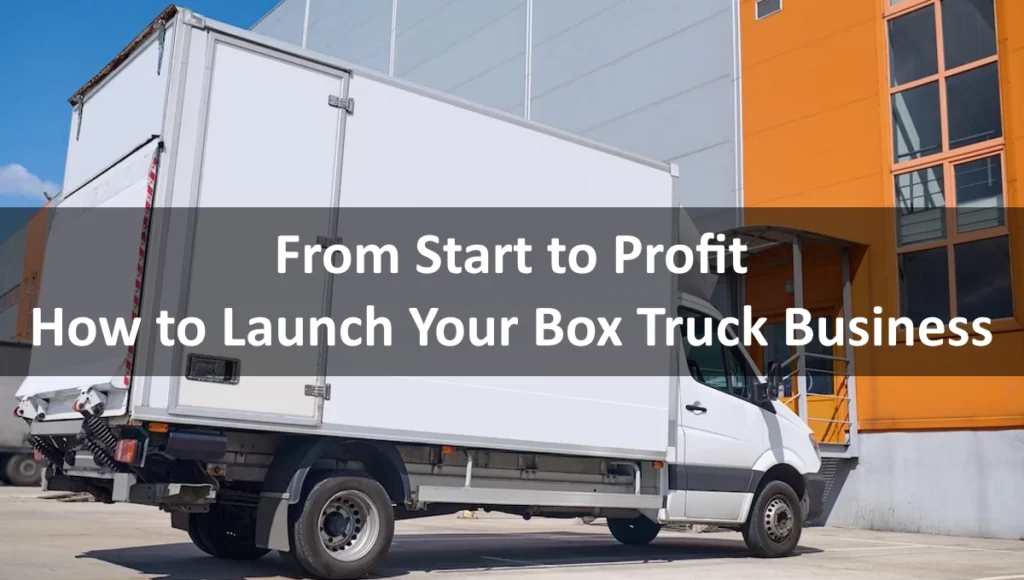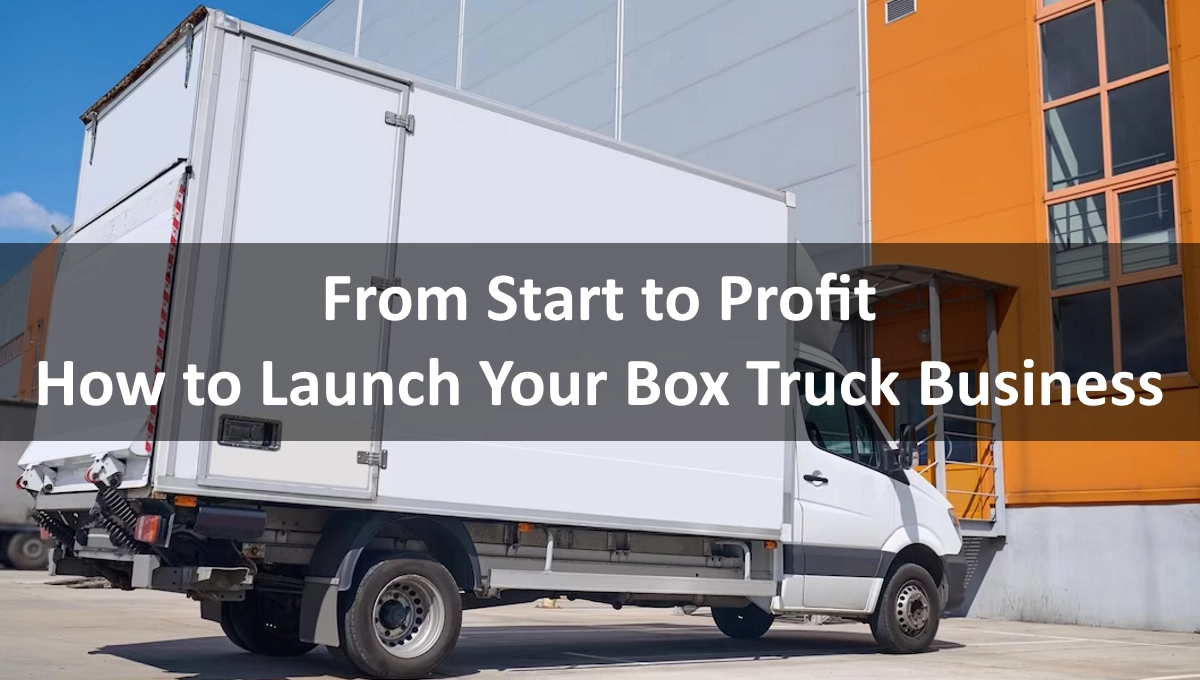How to Start a Box Truck Business
If you’re looking to enter the world of entrepreneurship and have an interest in the transportation industry, starting a box truck business can be a lucrative venture. Box trucks are versatile vehicles that can be used for a variety of purposes, such as moving, deliveries, or as mobile shops. To help you navigate the process of starting your own box truck business, we have outlined a step-by-step guide below.

How to Start a Box Truck Business
Introduction
Starting a box truck business requires careful planning and execution. In this article, we will provide you with a comprehensive guide on how to establish and run a successful box truck business. From defining your business to marketing strategies, we will cover all the essential steps to get you started on the right track.
1. Define the Box Truck Business
Before diving into the logistics, it’s important to have a clear understanding of what a box truck business entails. Define the specific services you will offer, such as local deliveries, long-haul transportation, or specialized moving services. Determine your target market and identify any niche opportunities you can capitalize on.
2. Research the Market and Competition
Thorough market research is crucial for the success of any business. Identify your target market’s needs, preferences, and pain points. Evaluate the competition in your area and analyze their pricing, services, and customer base. Use this information to differentiate your business and find unique selling points.
3. Create a Business Plan
A well-crafted business plan is essential for attracting investors, securing loans, and guiding your operations. Outline your business objectives, target market analysis, financial projections, and marketing strategies. Consider hiring a professional business plan writer or utilizing online resources to ensure a comprehensive and effective plan.
4. Acquire the Necessary Licenses and Permits
Operating a box truck business typically requires specific licenses and permits. Research the legal requirements in your area and obtain the necessary certifications. This may include a commercial driver’s license (CDL), motor carrier authority, and permits for hazardous materials or oversized loads if applicable.
5. Secure Financing
Starting a box truck business may require a significant upfront investment. Explore different financing options such as small business loans, equipment financing, or seeking investors. Present your business plan to potential lenders or investors to demonstrate the profitability and viability of your venture.
6. Purchase or Lease a Box Truck
Choosing the right box truck is crucial for your business operations. Consider factors such as size, payload capacity, fuel efficiency, and maintenance costs. Decide whether to purchase a new or used truck or opt for leasing options. Make sure the chosen vehicle meets safety regulations and is in good condition.

7. Set Up Insurance Coverage
Protecting your assets and mitigating potential risks is essential for any business. Consult with insurance providers specializing in commercial auto insurance to determine the coverage you need. This may include liability insurance, physical damage coverage, and cargo insurance to safeguard your clients’ belongings.
8. Establish a Pricing Structure
Create a price strategy that enables you to make a profit and cover your costs. Take into account elements like gasoline costs, upkeep, labor, and insurance. To stay competitive and make sure your company is financially sustainable, research industry norms and examine the pricing of your rivals.
9. Develop a Marketing Strategy
Promoting your box truck business is crucial to attracting customers and building a solid client base. Utilize both online and offline marketing techniques. Create a professional website, optimize it for search engines (SEO), and establish a presence on social media platforms. Consider partnering with local businesses and utilizing targeted advertising to reach your potential customers.
10. Hire and Train Employees
If your box truck business requires a team, carefully select and train employees who align with your business values. Seek individuals with a valid commercial driver’s license and relevant experience. Provide comprehensive training on safe driving practices, customer service, and efficient delivery or moving techniques.
11. Launch and Promote Your Box Truck Business
When you’re ready to launch, organize a grand opening event or promotional campaign to generate buzz and attract customers. Offer special deals or discounts to encourage initial bookings. Leverage your network and ask satisfied customers for testimonials or referrals to establish credibility and word-of-mouth marketing.
12. Provide Excellent Customer Service
Outstanding customer service is paramount in the transportation industry. Ensure your drivers and staff are friendly, professional, and punctual. Communicate with your clients promptly and address any concerns or issues promptly. Aim to exceed customer expectations to build long-term relationships and foster positive reviews.
13. Evaluate and Adjust Your Business Operations
Regularly assess your business performance and identify areas for improvement. Monitor key performance indicators (KPIs) such as customer satisfaction, revenue, and operating costs. Use this data to make informed decisions, refine your strategies, and adapt to changing market conditions.
Additional tips:
- Network with other businesses. Networking with other businesses in your industry can help you to get leads, find customers, and learn about new opportunities.
- Be prepared to work hard. Starting a business is a lot of work. Be prepared to put in long hours and make sacrifices.
With hard work and dedication, your box truck business can be a success.

Conclusion
A rewarding entrepreneurial journey can be had by starting a box truck business. You may build a strong foundation for success by adhering to the guidelines described in this article. A solid business plan should be written, extensive market research should be done, and exceptional customer service should be given first priority. Your box truck business has the ability to succeed with commitment and careful preparation.
Also, you can read about
- Company Setup in Australia 8 Best Ways for Newcomers
- Hot Shot Business 101: Expert Tips for Starting and Succeeding in the Industry
How much does it cost to start a box truck business?
The cost of starting a box truck business can vary depending on factors such as the purchase or lease of the truck, insurance, permits, marketing, and initial operating expenses. It is recommended to create a detailed business plan to estimate the costs accurately.
Do I need a commercial driver’s license (CDL) to operate a box truck business?
The requirement for a CDL depends on the size and weight of the box truck you plan to operate. Check with the local transportation authorities to determine the specific licensing requirements in your area.
How can I find customers for my box truck business?
Utilize online marketing strategies such as search engine optimization (SEO), social media marketing, and targeted advertising. Additionally, network with local businesses, join industry associations and leverage word-of-mouth referrals to attract customers.
What types of insurance do I need for my box truck business?
Insurance coverage for a box truck business typically includes commercial auto insurance, liability insurance, physical damage coverage, and cargo insurance. Consult with insurance providers specializing in commercial transportation to determine the specific coverage you need.
How can I differentiate my box truck business from the competition?
To stand out from the competition, consider offering specialized services, exceptional customer service, competitive pricing, or unique marketing strategies. Identify the unique selling points of your business and emphasize them in your marketing efforts.
Don’t forget to support us by following us on Google News or Returning to the home page TopicsTalk
Join Telegram and WhatsApp for More updates
Follow us on social media




